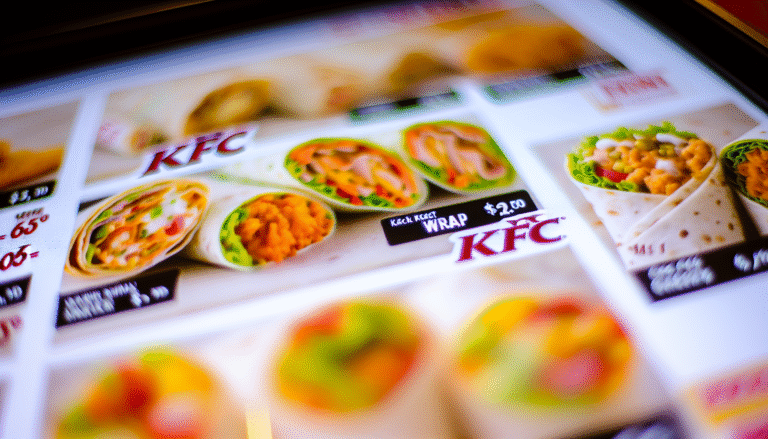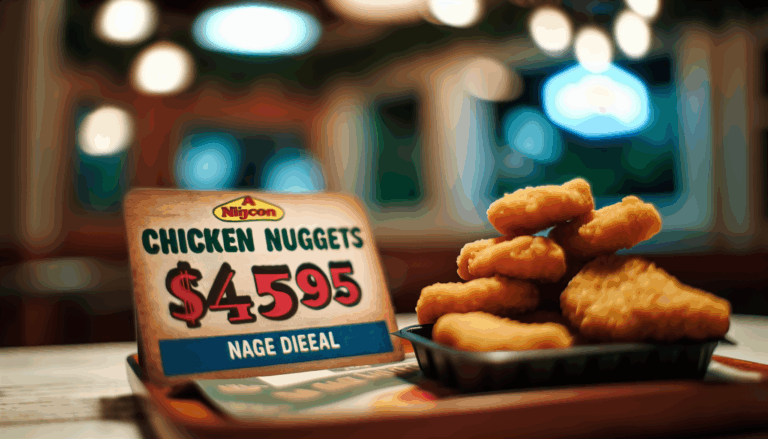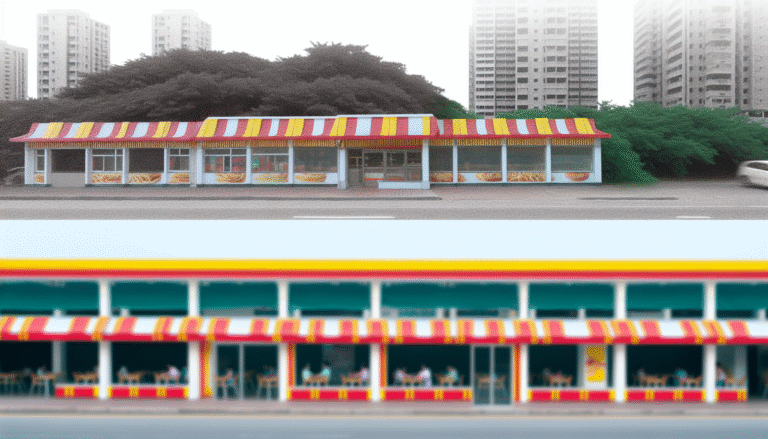Top 5 Competitors to KFC Australia
A Closer Look at the Leading Fast Food Chains
Market Overview of Fast Food in Australia
The fast food market in Australia has grown significantly over the years. Consumers enjoy quick and convenient meal options. Several key brands dominate this competitive landscape.
Major Competitors:
- KFC: Known for its fried chicken, KFC is a staple in the fast food scene.
- Maccas: This popular brand offers a wide range of burgers and fries. It appeals to various age groups and is often considered a go-to for families.
- Hungry Jacks: The Australian version of Burger King, it is famous for its flame-grilled Whoppers.
- Red Rooster: Specialises in roast chicken and has a unique offering compared to its rivals.
- Grill’d: Focuses on healthier options, offering gourmet burgers made with fresh ingredients.
- El Jannah: Well-known for its charcoal chicken and Lebanese-style meals, it caters to a diverse palate.
With an increasing focus on healthier eating, many chains have adapted their menus. For instance, Grill’d appeals to health-conscious consumers with its fresh and wholesome ingredients.
The market is also seeing growth in delivery services. Many fast food restaurants have partnered with apps to reach customers more easily. This trend shows how the industry is evolving to meet consumer needs.
Fast food in Australia presents a mix of traditional and modern choices, catering to everyone.
Competitive Analysis of Fast Food Chains
Fast food chains like Hungry Jack’s, McDonald’s Australia, and Red Rooster play significant roles in the competitive landscape. Each brand employs unique strategies to attract customers and differentiate itself in the market.
Hungry Jack’s Market Presence
Hungry Jack’s has established itself as a key player in the fast food industry. The brand focuses on affordability and value meals, offering a variety of burgers and sides.
They often run promotions that cater to budget-conscious consumers. Locations are strategically placed in high-traffic areas, making it easily accessible to customers.
Additionally, their commitment to local sourcing enhances brand loyalty. This approach helps them compete directly with KFC, especially in the chicken segment.
McDonald’s Australia (Maccas) Brand Strategy
McDonald’s Australia, commonly known as Maccas, emphasises customer experience and innovation. The brand continually updates its menu to include healthier options alongside their classic offerings.
Maccas uses targeted advertising and sponsorships to strengthen its connection with a younger audience.
With a strong presence in both urban and rural areas, it ensures convenience for its customers. Digital ordering and delivery options further enhance its competitive edge.
Seasonal promotions keep the menu exciting. Maccas’ strong brand recognition makes it a formidable competitor to KFC in the fast food arena.
Red Rooster’s Menu Diversity
Red Rooster stands out with its focus on chicken, offering a range of meals that include roast chicken, burgers, and wraps. The brand’s unique selling point lies in its emphasis on quality roast chicken.
They cater to families with combo meals and take-home options. Their menu also includes vegetarian items, appealing to a broader audience.
Red Rooster often engages in community promotions to build customer relationships. This focus on local engagement helps it compete effectively with KFC, attracting customers who seek variety and quality in their fast food choices.
Customer Loyalty and Engagement
Customer loyalty plays a crucial role in the success of fast-food chains. Both Grill’d and El Jannah have unique strategies to attract and retain customers. These approaches focus on food quality, brand image, and community connection.
Grill’d Healthy Burgers’ Appeal
Grill’d stands out by promoting health-friendly fast food. Their menu highlights fresh ingredients, with options like grilled burgers and salads. This focus on healthier choices attracts health-conscious customers.
Grill’d also runs loyalty programs, rewarding regular customers. The “Grill’d Rewards” program offers points for purchases, redeemable for discounts or free items. This encourages repeat visits and boosts customer engagement.
The restaurant often features local ingredients, creating a community feel. Customers appreciate knowing where their food comes from. Grill’d also engages in social media campaigns, appealing to younger audiences. This combination of health focus, rewards, and community connection fosters strong customer loyalty.
El Jannah’s Position in Family Dining
El Jannah is known for its charcoal chicken, appealing to families seeking convenient dining. Their large meal deals offer value for money, making it easy for families to share a meal.
El Jannah fosters loyalty through a family-friendly atmosphere. The restaurants often feature play areas for children, encouraging family outings. This makes El Jannah a preferred choice for parents.
The brand has a strong presence on social media, showcasing its dishes and customer experiences. Engaging posts attract new customers while reminding loyal ones of their favourite meals. Their commitment to quality and family engagement solidifies El Jannah’s position as a popular dining choice.
Franchise Models and Expansion Strategies
Franchise models are essential for fast-food brands in Australia. Each competitor has a unique approach.
Hungry Jacks operates a franchise model that focuses on independent ownership. This strategy allows them to expand rapidly across cities while maintaining local management.
Maccas (McDonald’s) uses a mixed model. They own some outlets and franchise others. This helps them control quality and branding while allowing for extensive franchise growth.
Red Rooster targets both franchise and corporate locations. Their strategy includes opening new franchises mainly in suburban areas. This focuses on reaching family-oriented customers.
Grill’d prides itself on a selective franchise approach. They prioritise locations in trendy urban areas. This model helps them attract health-conscious consumers and grow brand loyalty.
El Jannah focuses on a community-based approach. They encourage franchisees to engage with local markets. This strategy fosters customer relationships and boosts sales.
Here’s a comparison of their models:
| Brand | Franchise Model | Expansion Focus |
|---|---|---|
| Hungry Jacks | Independent franchises | Urban and suburban areas |
| Maccas | Mixed (franchise & owned) | Nationwide |
| Red Rooster | Franchise & corporate | Suburban and regional |
| Grill’d | Selective franchises | Urban trendy locations |
| El Jannah | Community-focused | Local engagement |
This information highlights how each competitor approaches expansion in the Australian market. They utilise different methods to appeal to various customer bases while growing their brands.
Advertising and Marketing Approaches
KFC Australia faces strong competition from other brands like Hungry Jacks, Maccas, and Grill’d. Each brand uses unique advertising strategies to attract customers.
Hungry Jacks focuses on value and deals. They often use humorous commercials that highlight their burgers. This approach targets younger audiences who enjoy a fun and engaging style. Must check Guide how to know when Beef is done
Maccas, known for its iconic branding, leverages nostalgia in its ads. The brand uses social media campaigns that feature promotions and partnerships with popular films. This helps Maccas stay relevant to a broad audience.
Grill’d takes a different approach by promoting its healthier options. They emphasize fresh ingredients and sustainability in their advertising. This appeals to health-conscious consumers who prefer a more modern dining experience.
All these brands invest heavily in social media marketing. They use Instagram and Facebook to reach their target groups effectively. Engaging content like videos and contests attracts attention and builds brand loyalty.
In addition, they utilise promotional events to create buzz. Free offers and community activities help these brands connect with their customers directly.
By combining various advertising methods, these competitors effectively challenge KFC Australia in the fast-food market. Each brand’s approach reflects its identity and target audience, making the competition more dynamic.
Related: Checkout, Contact, KFC Youth Foundation, Large Chips


